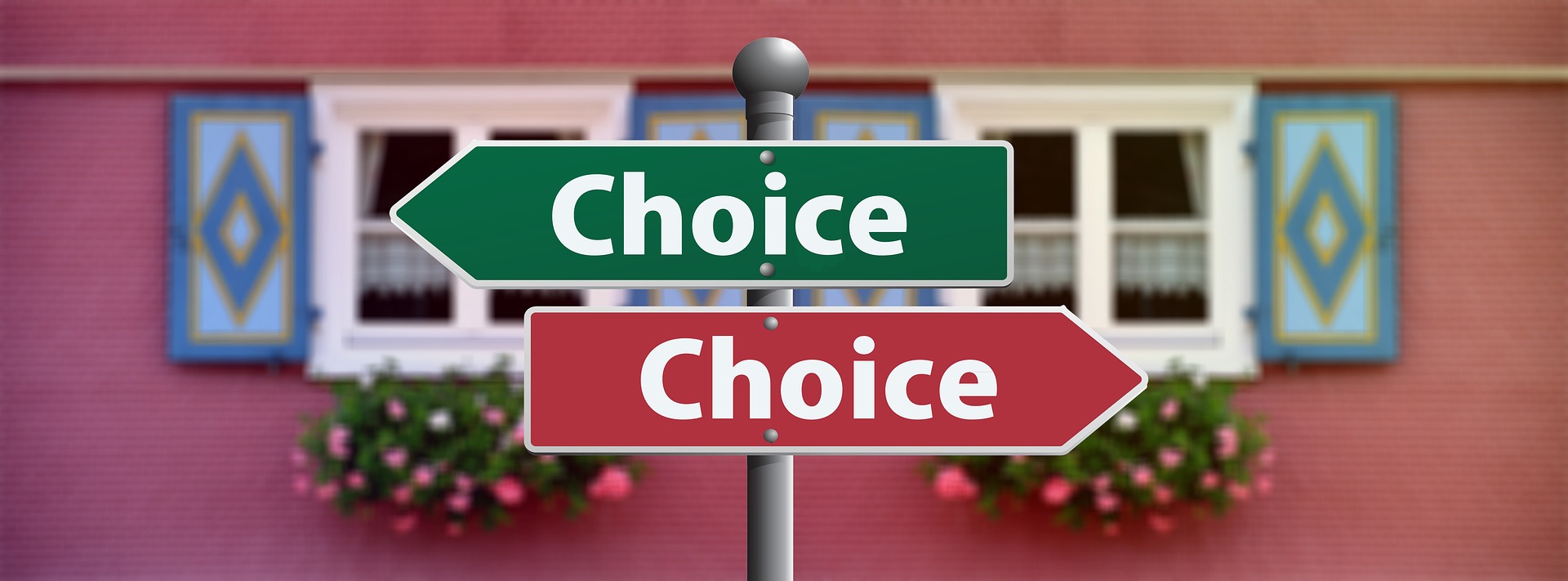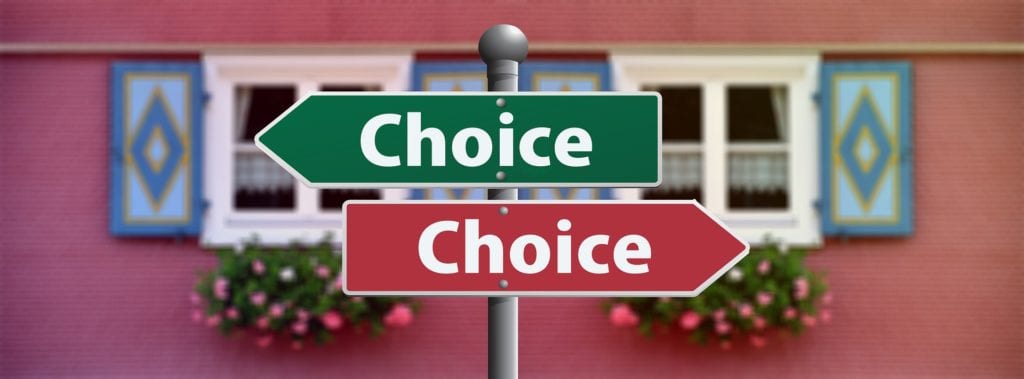

Making decisions is part of life.
“Do I brush my teeth this morning?” “Yes, I will.” “Will I take out the trash before going to work?” “No, I will get it tonight when I get home.”
We make hundreds of these simple choices every day. Most of them are routine and require only the most cursory examination of both sides of the question before we conclude.
Our brain is conditioned and is always waiting to decide.
And we all make poor choices at times. We don’t have enough information. We weren’t paying attention when the question was asked, or we thought something else was being asked. It happens from time to time to the best of people. This is normal.
What isn’t normal is having depression help you make decisions.
Yet for 43 years, I thought that was how you made decisions. The process begins when depression slips a note under the door. It’s not a directive, a do this or else type of note. It is more of a “have you ever thought about this?” From there, the seed has been planted.
Depression is patient and always willing to wait.
In my personal experience, depression knew that just by planting the seed, eventually I would come around to the decision, the idea that it had for me. And these ideas are always destructive in the end. But at the beginning, it never looked that way.
Depression can make a flaming bag of dog poop look like the ultimate prize, something I should strive to attain.
It can make me decide that I need that bag of flaming poop. Depression makes that bag of flaming poop look better than whatever normal activity is behind door number two. Then depression guides me to choosing the bag of flaming poop by reminding me I do not need to ask questions. I do not need to decide on my own. Depression has already done all the hard work; all I need to do is take what it is giving me as the correct choice.
And it gets better. Depression then shows me that being secretive about the choice is a much better strategy than sharing my decision with others. Depression reminds me that no one really understands me, that they are out to get me and that the best way to approach the decision is to make it without letting anyone know. After all, it is my decision, not anyone else’s.
And the fact that the decision may impact others is not my concern.
So what if my decision to choose a flaming bag of poop and carry it around proudly does not seem normal to others. I get to make my own decisions. Besides, I know better what I need because I have talked it over with depression. Only depression and I are qualified to make decisions for me. Only the two of us understand my struggle, my needs, my best choices.
And that works for a minute or two, until I set the bag of flaming poop down.
With the bag of flaming poop on the floor, suddenly, I have no control over it. And then all hell breaks loose. Things start to catch fire. The seemingly innocent bag of flaming poop is igniting everything it touches. And despite my best efforts, I can no longer control it or who or what it burns.
Once again, depression has lied to me and I’ve gone along with it.
Depression had assured me this would not happen. It reported to me confidently that nothing bad has ever happened when people carry around flaming bags of poop. And that by choosing that over a normal activity, I was asserting my independence, my brand, and I was being in control of my own life.
And for over 43 years, I believed this.
I believed that depression was normal. That being secretive and coy with my decisions was the best way to make them. So, what if every so often I crashed and burned after making a bad decision. There was no other way to go, right? Only depression had the answers and while listening to depression caused me lots of pain and heartache, it was what I knew.
I was being abused in my relationship with depression, but I stayed in it anyway.
So, after hitting the wall and finally facing depression, I am learning the full scope of what it has cost me. Depression has damaged relationships, damaged my health, and damaged my ability to make better decisions. It has distanced me from asking better question. It has preferred I choose unhelpful thinking styles. For me, it loves to get me into all or nothing thinking, along with fortune telling.
But minimizing and maximizing my thoughts about a choice gets me in trouble, too. Depression can make me think that the benefits of carrying around a flaming bag of poop (after all, there is so much light coming from it) is better than not having it (I can control it, no one will get hurt). So, I maximize the benefit of having light from the bag of flaming poop and minimize the fact that when I set it down for even a moment, things are going to catch fire.
Today I have tools to help me make better decisions.
I have constructed a WRAP, wellness recovery action plan. I am building a SMART plan, designed to give me tools to develop and maintain a healthy lifestyle. And I have started asking better questions to debunk my unhelpful thinking. I no longer pal around with depression. I am not waiting secretly in back alleys for its next coded message, I’m not waiting for the next note to be slipped under the door. I am not concealing my relationship with depression
I am calling depression by name and facing it head on.
This is helping me to make better decisions. And helping me see the destructive power depression was giving me in the guise of a better decision. Depression was never about others, and never about me. It was about control. Depression is happiest when I am making the decisions it wants me to make. It is even happier once I believe that the decision is mine and I secretly defend it against everything that would help me see that there are other choices.
Every day I am stronger. Everyday I am making better decisions. Every day, since facing my depression and calling it out for what it is, I am a better person to myself and others.
I choose to say, “I have depression, depression does not have me.”
Your thoughts and comments are appreciated as I continue my journey







Leave a Reply